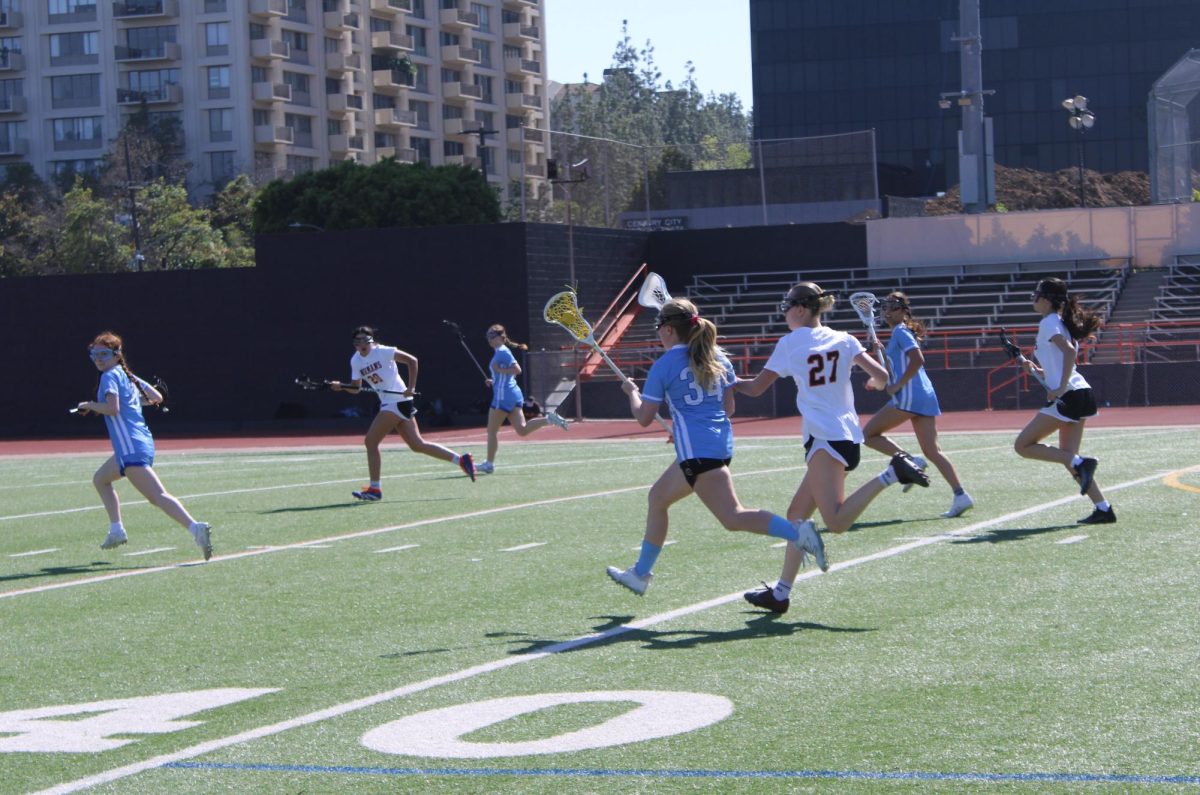Jackson Prince staff writer

Each year, numerous difficult choices face an incoming freshman. Honors or regular English? Wake up for first period or sleep in until second? Bring a lunch or brave the cafeteria lines? And perhaps the most challenging decision presents itself to the former AYSO midfielder, Little League second baseman and Pop Warner running back: to play sports or not to play sports? (With apologies to Shakespeare’s Hamlet, rumored to have been a decent high-school point guard.) The decision of whether a student should participate in sports is one that may affect one’s entire high-school experience. While some schools focus much of their attention on their athletic programs, Beverly High has traditionally spread its resources among its many extracurricular areas.
With the athletic program limited, in that the permit policy was revoked, most incoming Norman athletes may not be at the elite level which leads to college scholarship offers.
“We don’t have scholarships to give out. It’s great if a kid is excellent in their respective sport, but one can’t rely solely on sports to get into their desired college,” girls’ athletic director Vonzie Paysinger said.
Although Norman athletes might proudly display their Varsity letters on each college application, they should not depend exclusively on their athletic ability for acceptance
into the college of their choice. Our student-athletes must succeed in the classroom, as well as on the field, which creates a time conflict between athletics and academics.
Because they are forced to efficiently manage their time in order to maintain a minimum GPA of 2.0, are student-athletes more successful than their non-athlete peers? Or, do the significant hours required to participate in a sport take away from the time necessary for academic excellence?
A 2012 study for the Journal of Sports Administration and Supervision by Professor Angela
Lumpkin (University of Kansas) and Dean Judy Favor (Baker University) reported that high-school athletes had higher grades and test scores than non-athletes. This concluded that, at the very least, being an athlete didn’t detract from academics. LA Times reporter Eric Sondheimer cited a 2012 LAUSD study of 35,000 students, in which it was determined that athletes average GPAs of 0.55-0.74 points higher than non-athletes.
The key to academic and athletic success for many participants in sports is balance. Former Beverly runner Josh Galen feels that the balance he found in high school has helped him at the University of Southern California.
“Being a student-athlete is difficult and requires the work ethic in practice to be [additionally] applied to other areas of one’s high-school career,” Galen said.
Paysinger similarly appreciates the ethical importance of student athletics.
“These kids are learning how to work for something. If the discipline that they have on the field can be applied to their homework, it’s a major bonus,” Paysinger said.
Current UC Berkeley student-athlete Sydney Gray identifies the advantages of participating in a sport, as opposed to being a non-athlete. “Norman student-athletes have been exposed to the time management skills which are required in order to succeed in college, while the average student lacks these key abilities,” Gray said. And yet, this is not so simple a question, which is why Hamlet spent so many years posing it. (By the way, he went with honors, period two and a sack lunch.) Those familiar with the academic-athletic dynamic, like head counselor Diane Hale, see the other side of the argument.
“Some students thrive when they are extremely involved and multi-task successfully. Others may have difficulty excelling academically while engaging in tireless hours of outside activity,” Hale said.
A 2005 Online Journal of Sport Psychology study by Dr. Gregory Wilson (University of Evansville) and Dr. Mary Pritchard (Boise State University) revealed that many college student-athletes suffered from anxiety due to lack of time for studying. In order to avoid this pressure, counselor Celeste McDonald suggests that Norman student-athletes reach out for help.
“Students need to find support from their teachers, coaches and counselors if they are feeling too stretched out,” McDonald said. “If students’ grades are suffering because they are spending too much time on outside activities, they can be hurting their chances of being strong candidates to the colleges of their choice.”
A former Norman athlete himself, Paysinger takes a sensible view.
“If a student-athlete doesn’t have balance and focuses all his attention toward participating in college sports, we lose focus academically, which hurts us in the long run,” Paysinger said.
But what of the initial question? Does participating in sports create time-management skills or the dreaded time suck?
Sports can be incredibly beneficial to one’s high school experience, as well as success in college. Not only do time-management skills aid students in their ability to handle the pressures of a Norman workload; the lessons learned during practices and games, involving leadership, teamwork, efficiency and even patience, are applicable toward the student-athletes’ résumés when being considered by their ideal colleges. The effect of sports on one’s experience in high school is usually positive, as athletics produces memorable moments, creates lasting friendships, teaches vital life lessons and, yes, assists students in their academic endeavors. Studentathletes have less time than the average student to finish school work, meaning that they must work with greater efficiency. The practice that student-athletes receive in regards to time-management and discipline will be to their advantage upon entering college. In other words, it is a time-management tool, not a time-sucking vacuum.
Gray has her own view of how universities view participation in sports.
“Colleges recognize the difficulty of balancing academics and sports and therefore prefer student-athletes, or other students heavily involved in an extracurricular activity,” Gray said.
However, after all is said and done and written, incoming Norman ath- letes, the metaphorical (and literal) ball is in your court.
Categories:
Athletics not a threat to academic performance
September 30, 2013
0
Donate to Highlights
$125
$1000
Contributed
Our Goal
Your donation will support the student journalists of Beverly Hills High School. Your contribution will allow us to purchase equipment and cover our annual website hosting costs.
More to Discover































